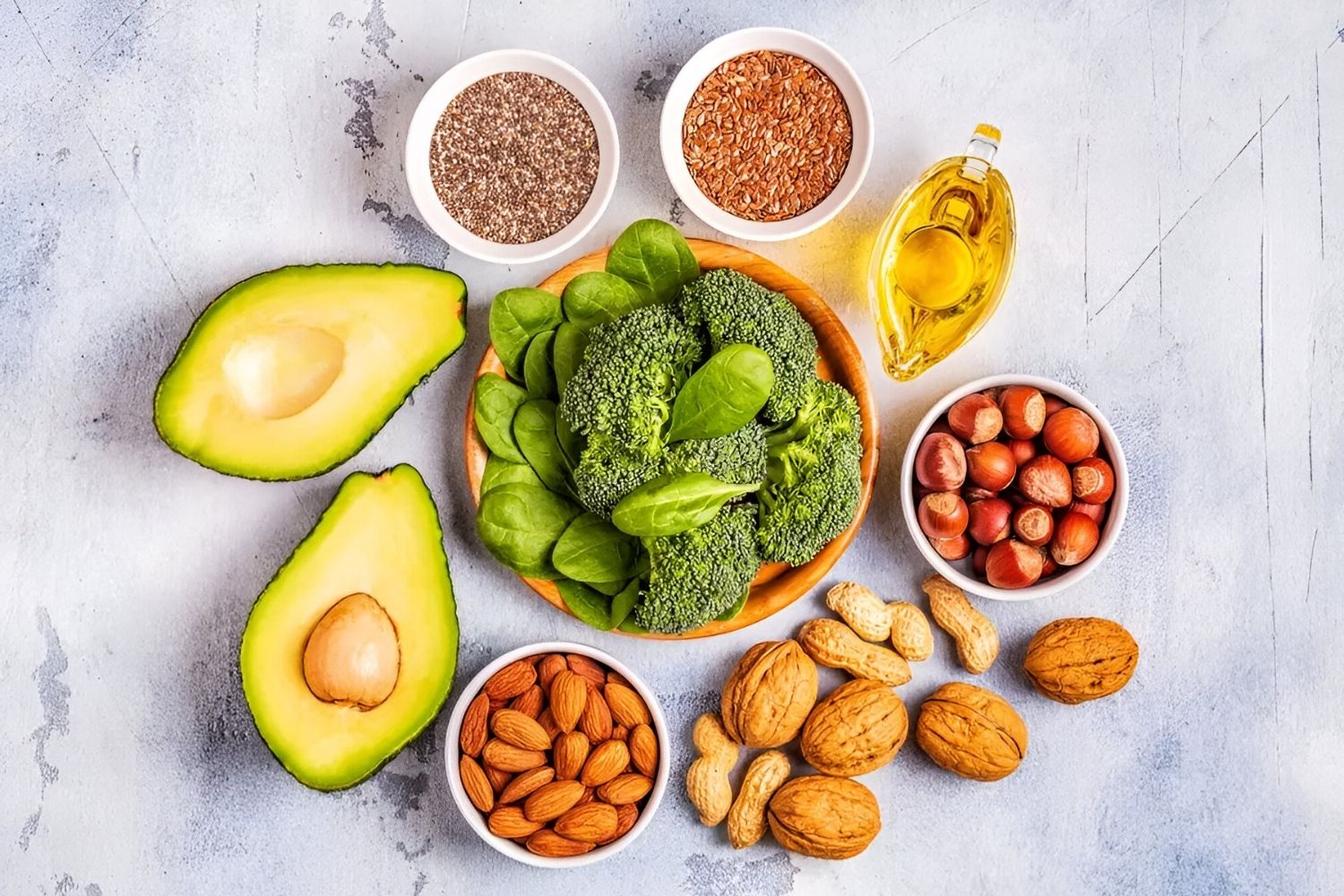
What is vegan omega-3? Omega-3 fatty acids are essential for our health, but many people think they can only get them from fish. Vegan omega-3 comes from plant sources like algae, flaxseeds, chia seeds, and walnuts. These sources provide the same benefits without harming animals or the environment. Why choose vegan omega-3? It’s a great option for those who follow a plant-based diet or want to reduce their carbon footprint. Plus, plant-based omega-3s often come with added nutrients like fiber and antioxidants. Ready to learn more? Here are 28 facts about vegan omega-3 that might surprise you!
Key Takeaways:
- Vegan Omega-3, found in algae, chia seeds, and walnuts, supports heart, brain, and skin health. It's a sustainable, cruelty-free alternative to fish oil, offering similar benefits with a milder taste.
- Incorporating vegan Omega-3 into your diet is easy and delicious. From smoothies to salads, there are plenty of tasty ways to enjoy the benefits of plant-based essential fatty acids.
What is Vegan Omega-3?
Vegan Omega-3 is a plant-based alternative to fish oil, providing essential fatty acids without animal products. These fatty acids are crucial for maintaining overall health.
- Omega-3 fatty acids are essential for brain function, heart health, and reducing inflammation.
- Vegan sources of Omega-3 include algae, flaxseeds, chia seeds, hemp seeds, and walnuts.
- Algae oil is one of the richest sources of DHA and EPA, the most beneficial forms of Omega-3.
- Flaxseeds are high in ALA, a type of Omega-3 that the body can partially convert to DHA and EPA.
- Chia seeds provide a significant amount of ALA, making them a popular choice for vegans.
- Hemp seeds contain a balanced ratio of Omega-3 and Omega-6 fatty acids.
- Walnuts are another excellent source of ALA, contributing to heart health.
Health Benefits of Vegan Omega-3
Incorporating vegan Omega-3 into your diet can offer numerous health benefits. These benefits are comparable to those provided by fish-based Omega-3.
- Heart health improves with regular intake of Omega-3, reducing the risk of heart disease.
- Brain function benefits from DHA, which supports cognitive health and memory.
- Inflammation reduction is another advantage, helping with conditions like arthritis.
- Eye health is supported by DHA, which is essential for maintaining good vision.
- Mental health can improve, as Omega-3s are linked to reduced symptoms of depression and anxiety.
- Skin health benefits from Omega-3s, which help maintain moisture and reduce acne.
- Pregnancy requires adequate Omega-3 intake for fetal brain development.
How to Incorporate Vegan Omega-3 into Your Diet
Adding vegan Omega-3 to your diet is easier than you might think. Here are some practical ways to ensure you get enough of these essential fatty acids.
- Smoothies can be enhanced with chia seeds or flaxseed oil for a nutritious boost.
- Salads benefit from a sprinkle of hemp seeds or a drizzle of walnut oil.
- Baking with flaxseed meal can add Omega-3 to your favorite recipes.
- Snacking on walnuts provides a tasty and healthy Omega-3 source.
- Supplements like algae oil capsules offer a convenient way to ensure adequate intake.
- Oatmeal topped with chia seeds or walnuts makes for a hearty, Omega-3-rich breakfast.
Comparing Vegan Omega-3 to Fish Oil
Many people wonder how vegan Omega-3 stacks up against traditional fish oil. Here are some key comparisons to consider.
- Sustainability is a major advantage of vegan Omega-3, as it doesn't deplete marine life.
- Purity is often higher in algae oil, which is free from ocean pollutants like mercury.
- Ethical considerations favor vegan Omega-3, aligning with cruelty-free and vegan lifestyles.
- Conversion efficiency of ALA to DHA and EPA in the body is lower, but still beneficial.
- Taste and odor are typically milder in vegan Omega-3 sources compared to fish oil.
- Allergy-friendly options are available with vegan Omega-3, avoiding fish-related allergens.
- Environmental impact is reduced with plant-based sources, promoting a greener planet.
Potential Challenges and Solutions
While vegan Omega-3 offers many benefits, there are some challenges to be aware of. Here are solutions to common issues.
- Conversion rates of ALA to DHA and EPA can be improved by consuming a balanced diet rich in other nutrients like zinc and magnesium.
Final Thoughts on Vegan Omega-3
Vegan omega-3 sources offer a fantastic alternative to fish-based options. Algae oil, chia seeds, flaxseeds, and walnuts are rich in these essential fatty acids. They support heart health, brain function, and reduce inflammation. Plus, they’re environmentally friendly and cruelty-free. Incorporating these into your diet can be simple and delicious. Smoothies, salads, and even baked goods can benefit from a sprinkle of chia or flaxseeds. Algae oil can be used in cooking or taken as a supplement. Remember, balance is key. While vegan omega-3s are beneficial, they should be part of a varied diet. Always consult with a healthcare professional before making significant changes to your diet. Embrace the benefits of vegan omega-3s and enjoy a healthier, more sustainable lifestyle.
Frequently Asked Questions
Was this page helpful?
Our commitment to delivering trustworthy and engaging content is at the heart of what we do. Each fact on our site is contributed by real users like you, bringing a wealth of diverse insights and information. To ensure the highest standards of accuracy and reliability, our dedicated editors meticulously review each submission. This process guarantees that the facts we share are not only fascinating but also credible. Trust in our commitment to quality and authenticity as you explore and learn with us.
